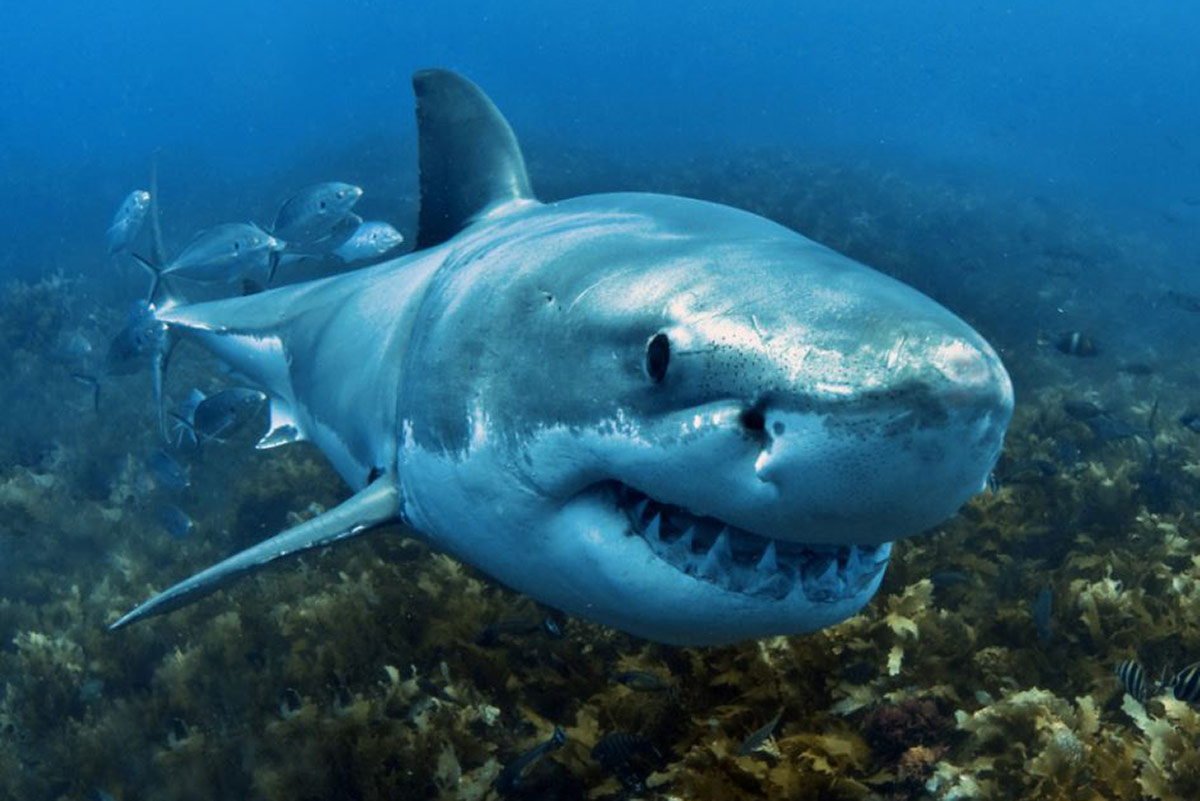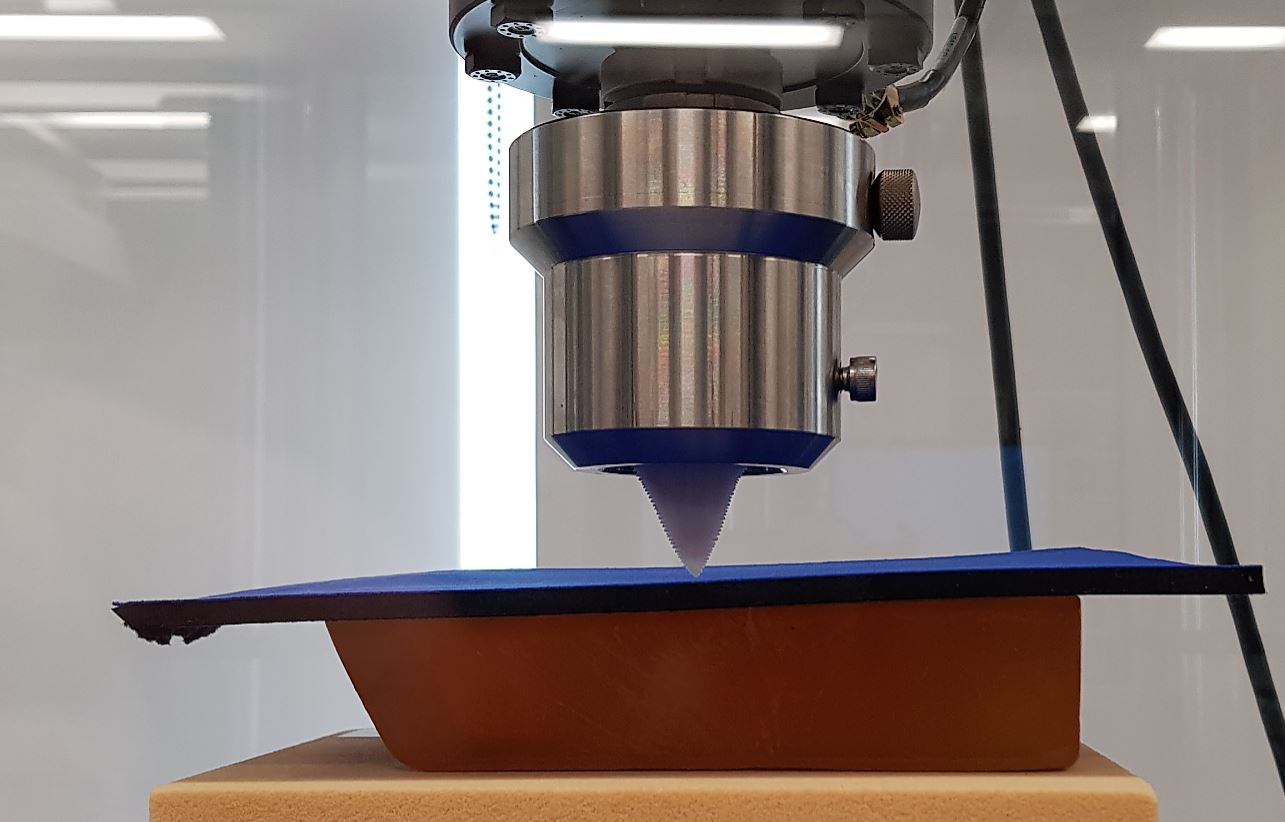
Research at Flinders University is testing wetsuit fabrics in a bid to help prevent shark attack fatalities by reducing the main cause of death – blood loss.
With a $90,000 grant from the Department of Primary Industries in NSW, Associate Professor Charlie Huveneers, leader of the Southern Shark Ecology Group in the College of Science and Engineering, says testing has started to develop a protective material for a wetsuit that could help prevent large wounds suffered by surfers and swimmers in attacks.
The material used for the suits would be similar to Kevlar, a heat-resistant, strong synthetic fibre typically used for bullet and stab-resistant body armour.
“The material was developed with the intent of being resistant to cuts and punctures so that it reduces wounds and therefore blood loss which is the main cause of fatalities from shark attacks,” says Associate Professor Huveneers.
“There are three components to our testing. We are first testing and comparing the force required for a shark teeth to penetrate the material versus. standard neoprene.
“This force will then be compared to the force exerted during a shark bite by measuring the bite force of various species, including white sharks.”

The group will soon begin testing the material using sharks in their natural environments off the Spencer Gulf in South Australia.
The location is one of the Australia’s largest aggregations of great white sharks, and also the centre of the cage-diving tourism industry.
“Finally, we will also test and compare the damage incurred by a shark bite. We will entice sharks to bite on the new material and on standard neoprene and compare the number and size of holes and cuts between the different materials.”
“ The new material is aimed at reducing blood loss from cuts or lacerations. While we are aware that it will not prevent factures or injuries from crushing, most shark bite fatalities are due to blood loss.”
” When a shark bite occurs, it can have severe physical, mental, social, and economic consequences. It is therefore important to keep developing new means of reducing shark bite risks and ensure the efficacy of such new products.”
The new material will be tested against standard materials commonly used by surfers and divers, with findings to be released later this year.
The Southern Shark Ecology Group has previous conducted research into electronic shark repellent devices as part of a range of activities covering the movement and behaviour of Australian shark populations.

